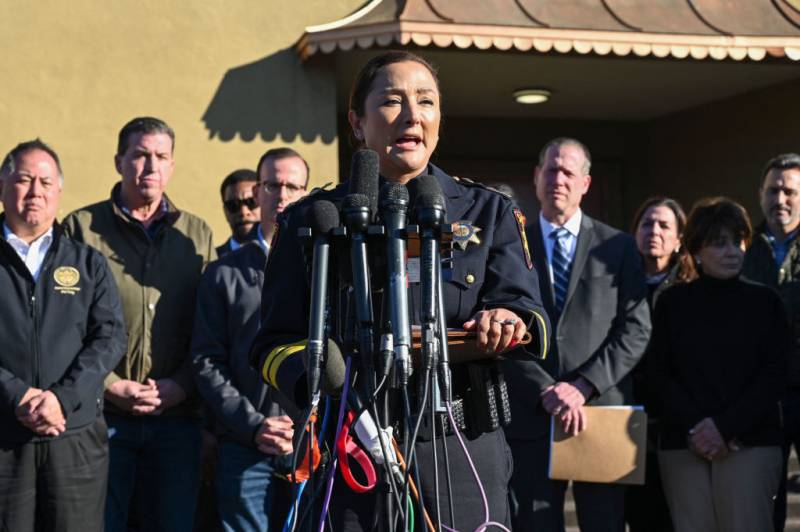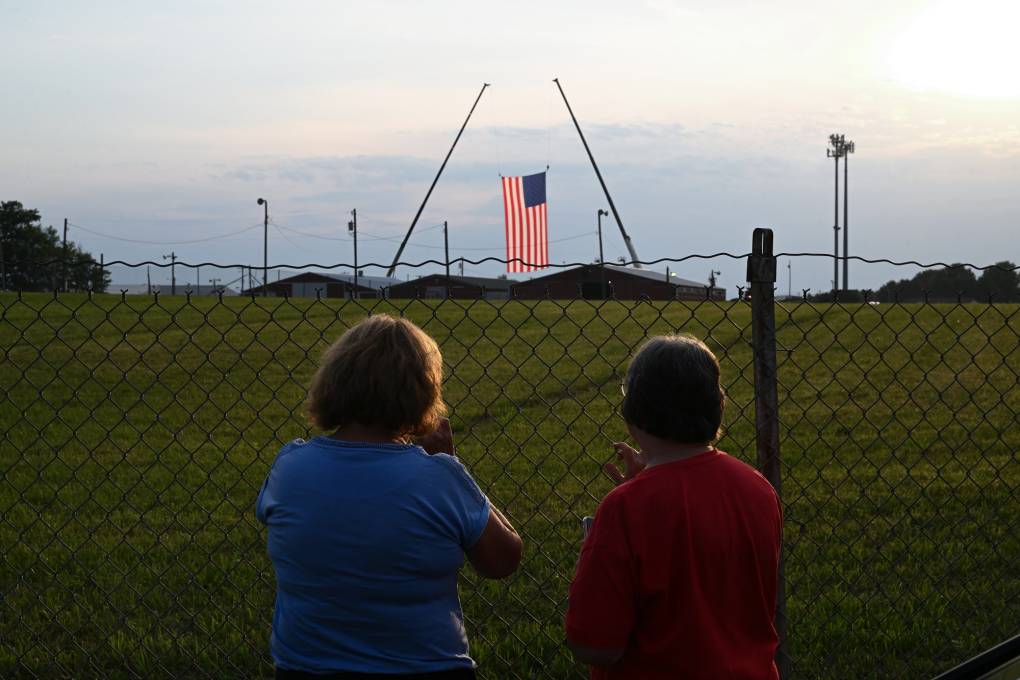Sometimes that outsider status has been a challenge in a sheriff’s department that is still largely male dominated. But Corpus said it’s also given her a different perspective, even at the start of her career, when the advice was basically to suck it up.
“When I was in our field-training program 20 years ago, I responded to a call for service of an unresponsive toddler on Thanksgiving morning,” she told KQED in an interview two weeks before the Jan. 23 shootings that left seven farmworkers dead and an eighth critically injured.
“And as I arrived on scene, I saw the fire department pulling this little boy out of a pond, and they worked for about 45 minutes on resuscitating him, but they were unsuccessful.”
The boy had slipped outside while his mother was changing her newborn baby’s diaper. Corpus remembers that her training officer told her to conduct the interviews and investigation without showing any emotion. When her report was done, they went back on patrol.
“Not once was I asked, ‘Are you OK? Do you want to talk to anybody?'” she said.
That service call, though, has stayed with Corpus.
“There’s not a Thanksgiving morning that goes by that I don’t think about that curly-haired little boy in overalls and think about how he would have been an adult by now,” she said. “And then I think about the mother. Now that I’m a mother, how has she navigated through life?”
For first responders, Corpus says, it’s like being handed a backpack on the first day of work.
“And every time you go to a critical incident, you put a rock in your backpack,” she said. “And if you don’t take those rocks out of your backpack, the backpack’s gonna get too heavy and you’re going to topple over.”
During that interview with KQED, before the shooting rampage, Corpus spoke about creating a robust mental wellness program at the San Mateo County Sheriff’s Department, and working to ensure that there is a culture in which officers know it’s OK to ask for help.
Corpus put those plans into action last week. She said her first move on Monday was to get to the crime scenes herself to support her officers. Then she released the deputies who first responded so they could go home and be with their families.
Those officers also met with one of her department’s mental health professionals, she said.
“[I came to do] a debriefing with them and to openly talk about it,” Corpus said last week. “And I’ll be checking in with them on a daily basis to make sure that they’re OK and whatever support that they need, they’ll have it from me and the organization.”
Corpus isn’t alone in prioritizing what’s become known as “officer wellness.” The increased focus on this issue comes amid a mounting body of data showing that law enforcement officers are more likely to die of suicide than in the line of duty.



